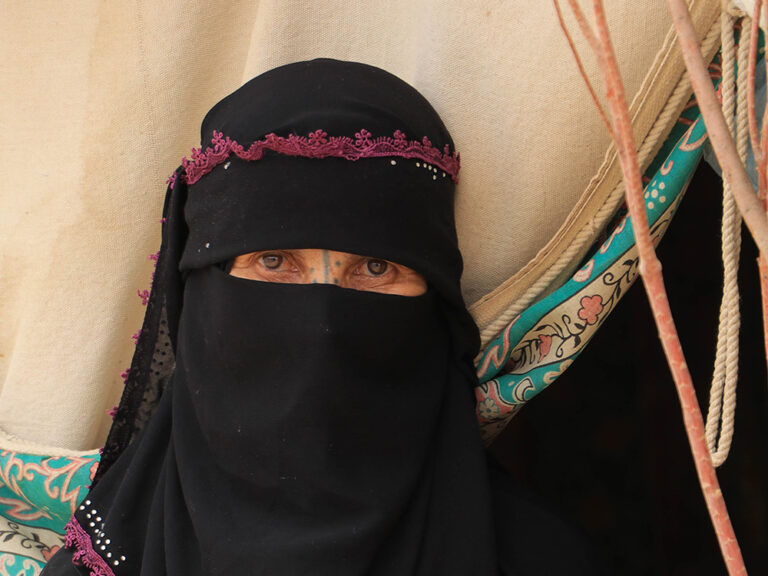Since 2004, The Houthi movement has been leading a rebellion against the military in Yemen. In 2014, Tensions between Houthis and government forces escalated into outright civil war. Millions of people in Yemen are suffering from the heightened effects of armed violence, ongoing economic crisis and disrupted public services.
ShelterBox have previously provided people who are newly displaced with tents. Tarpaulins and rope were given to people living in damaged shelters. Presently, in partnership with BCHR (Benevolence Coalition for Humanitarian Relief), we are focusing on providing households with more durable shelters that are more effective for the typical weather and environment in Yemen.
Our partner, BCHR, met Dawla, who currently lives there with her two sons, daughter and two grandchildren. Dawla and her family were forced to flee their home in 2015 and have been displaced three times since.
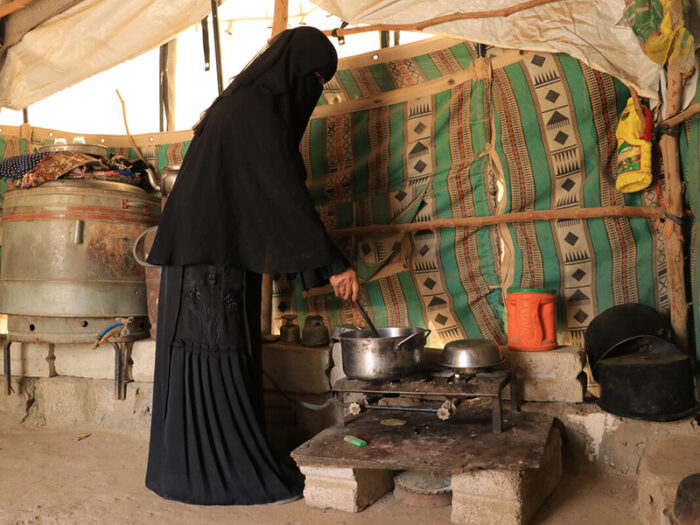

“We were in the best condition”
Before the war, Dawla and her family lived and worked on their farm, cultivating crops such as wheat, corn, barley, and grapes.
“We were settled in our homes and depended on agriculture for our source of income, and we were in the best condition.”
Dawla and her family lived in a four-bedroom house where she would spend her days tending to the land around her home.
“My favourite memories are my children playing when they were little, and the moments they greeted their father when he came home.”
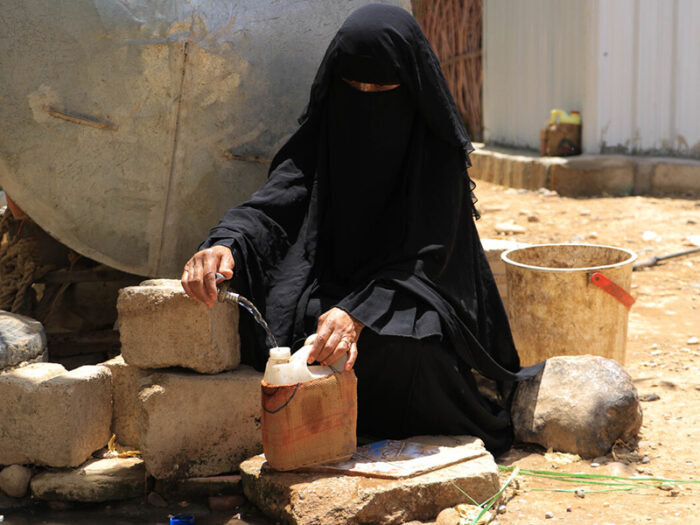

“It was an arduous journey full of troubles, hardships and dangers”
Dawla’s home was destroyed during the conflict in Yemen. The land which her family grew up on has become barren after being neglected for so long.
“We first fled from our homes to a camp far from the areas of conflict and war. We left our homes at night before dawn and the war was raging near our area.”
After just one month, Dawla and her family were forced to flee for the second time when armed groups reached the camp. The family moved for the third time as the camp still did not feel safe.
“It was an arduous journey full of troubles, hardships and dangers.”
After Dawla’s husband died, she was left to take care of her family.
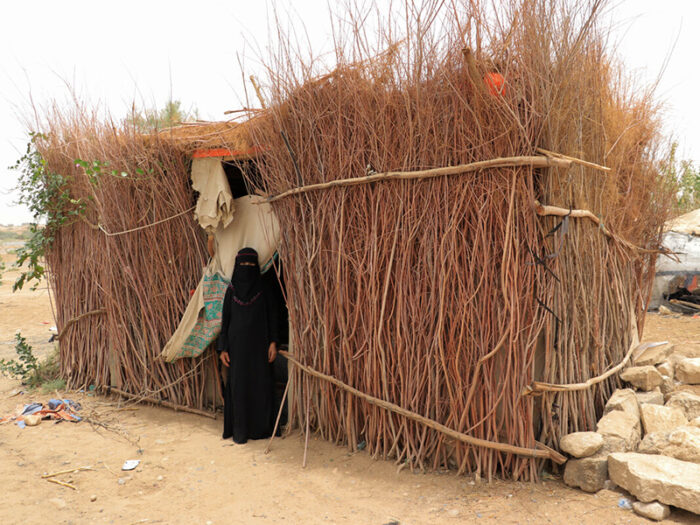

Looking back on the many displacements, Dawla recalls,
“We first felt sad about the separation of our homes, our farms, and our land in which we were born and raised, and our displacement to a land whose atmosphere and people we are not accustomed to, then our lives got worse when we were displaced for the second time, leaving everything that we started to collect after the first displacement of furniture and living necessities.”
Throughout this period, Dawla also struggled with her health. Due to recent heart surgery, she was advised to avoid any activities that caused stress and anxiety.
“The doctor who operated on me always advised me to stay away from anxiety and stress because of its damage to the heart, and whenever wind or rain came, I would get nervous and worry about my daughter’s children getting sick.”
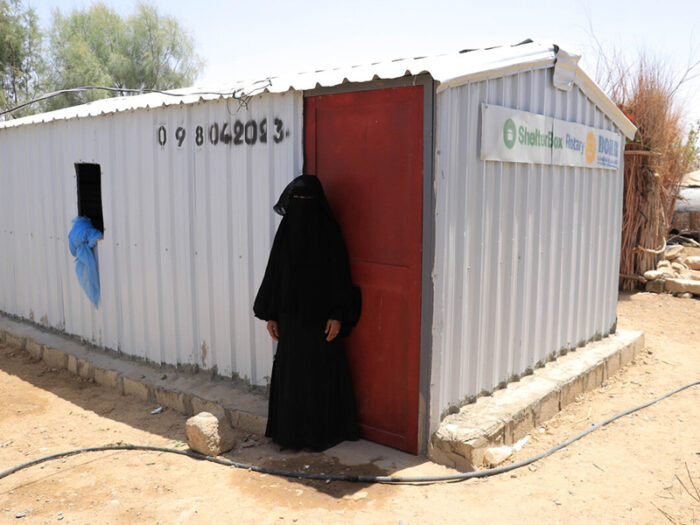

“A beautiful feeling, we felt safe for the first time”
Before support from ShelterBox, Dawla was living in a shelter made from thatched sticks. This did little to protect her from rain, sun or cold. She has now received one of the durable shelters.
When asked to describe how she felt when she received her new shelter Dawla said, “A beautiful feeling, we felt safe for the first time, because we will have a shelter from rain, wind and cold, and this is what we suffer most from.”
Now Dawla lives in a safer and more robust shelter, she has been able to look after her health post operation, “this shelter helped me a lot to feel calm and not stress in the event of rain and wind, because of its safety.” In addition to the shelter, Dawla was given essential household items, such as new blankets and mattresses. These have allowed her family more comfort to sleep better at night. As well as protecting the family from the elements, Dawla explains how her new home increases their quality of life in the camp.
“It preserves your privacy, so no one can see what you are doing inside it, or even if you go out to work outside the camp, you can close it and check a little on your things.”
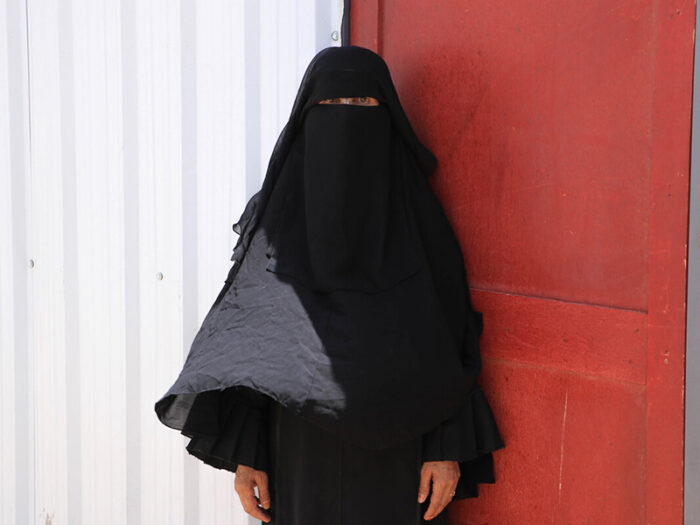

Looking ahead
When asked about the future for herself and her family Dawla replied, “We do not think much about the future more than we think about who we are now. How can we live more securely in a situation where dangers are almost daily. For the sake of our children and grandchildren we love, I wish them a better life and a more beautiful situation than ours.”
Dawla strives for a better life for her children and grandchildren. “I hope they live a stable and reassuring life, learn and contribute to the development of their country to improve from the situation of war to the situation of stability.”
Dawla concluded the interview by saying “We thank you for all the assistance you have given us, and I hope that we will find projects in health and education, our children’s future is far more important to us, than our own.”

